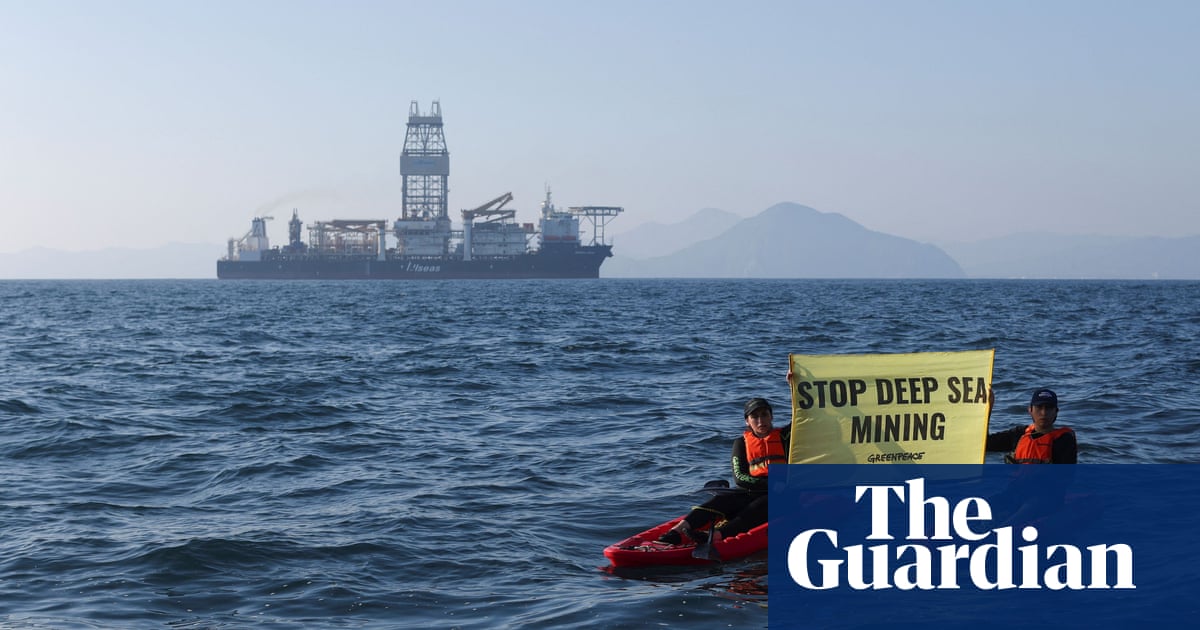Britain has announced its backing for a moratorium on commercial deep-sea mining, after criticism from scientists, MPs and environmentalists of its previous stance in support of the emerging industry.
On Monday, the UK government said publicly it would back a temporary suspension on supporting or sponsoring any exploitation licences to mine metals from the sea floor until enough scientific evidence was available to understand the impact on ecosystems.
Last month, dozens of scientists warned the prime minister, Rishi Sunak, that allowing industrial-scale exploitation of the seabed could have grave consequences, both for marine life and for the ability of the ocean, one of the planet’s greatest carbon sinks, to absorb carbon dioxide.



This is the best summary I could come up with:
Britain has announced its backing for a moratorium on commercial deep-sea mining, after criticism from scientists, MPs and environmentalists of its previous stance in support of the emerging industry.
On Monday, the UK government said publicly it would back a temporary suspension on supporting or sponsoring any exploitation licences to mine metals from the sea floor until enough scientific evidence was available to understand the impact on ecosystems.
The change of heart puts it on a growing list of at least 20 countries, including Brazil, France, Germany, Sweden and Canada, calling for a pause on supporting exploration licences, at least until the environmental effects of seabed exploitation are better understood.
In July, the Labour party urged the government to back the proliferating calls for a precautionary pause on deep-sea mining “unless and until” there was clear scientific evidence that it could be done safely and with new regulations to protect the marine environment.
Scientists and environmental groups counter that less than 1% of the world’s deep seas have been explored, and warn that deep-sea mining could unleash noise, light and suffocating dust storms.
“Deep-sea mining poses an existential threat to some of the most vulnerable, least explored habitats on the planet,” said Clare Brooke, the chief executive of the conservation organisation Blue Marine Foundation.
The original article contains 678 words, the summary contains 214 words. Saved 68%. I’m a bot and I’m open source!